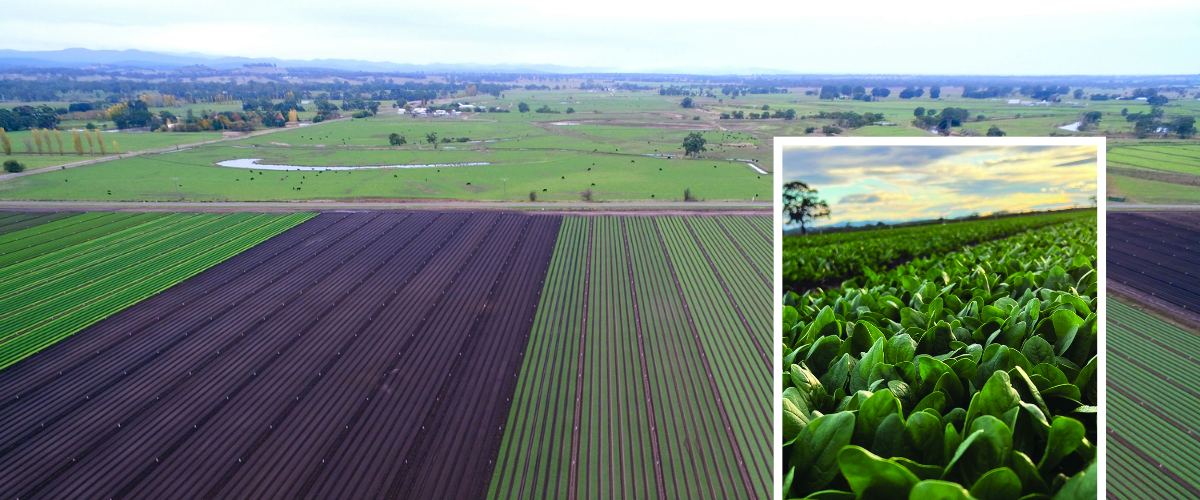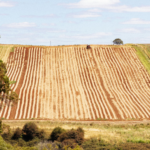
West Pine data crunching to improve future onion crop yield
28 May 2025Growing A Career in Horticulture: Forklift Driver & Warehouse Worker
16 June 2025Half a century ago in rural France, Victorian vegetable grower Brian Hussey saw French farmers spreading seed on their fields, and harvesting the leafy vegetables that sprang up while they were still small.
This ‘mesclun’, a French term for a mixed salad made with young, tender greens, was a new concept to Brian, as it was to most of Australia. He brought the idea home and began producing Australia’s first ‘baby leaf’ product on his Pearcedale farm on the Mornington Peninsula.
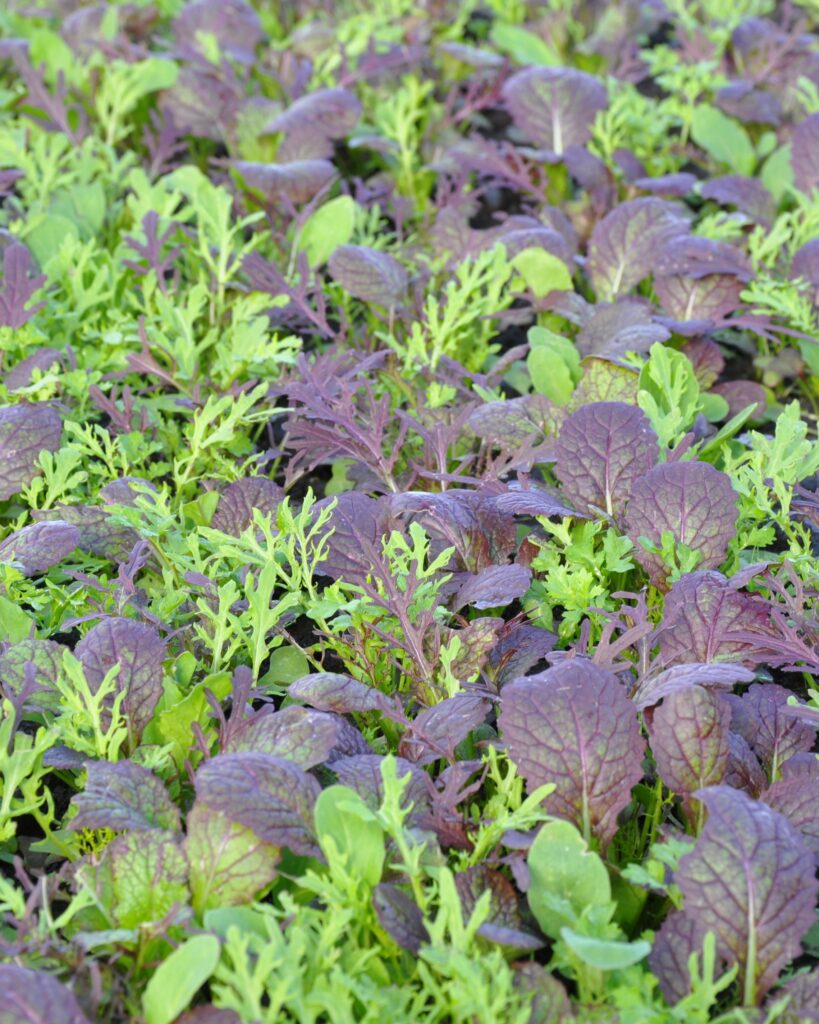 The product was a hit with chefs, and in the decades since has gone on to become one of Australia’s largest vegetable categories.
The product was a hit with chefs, and in the decades since has gone on to become one of Australia’s largest vegetable categories.
“He really pioneered the whole baby leaf industry in Australia,” says Jeremy Haw, the Managing Director of Hussey Group.
Some years down the track, however, Brian Hussey sold the company to a group of New Zealand investors who were looking to import salad from Australia.
They ran it for two years before Jeremy, a recent migrant from South Africa, joined the business as its sales manager.
“I was there for three months, then they asked me to be the GM,” he says. “It was a very small business at that point, and it wasn’t making any money. We managed to turn it around and make it profitable, and I ran it for the next three years.”
Jeremy was renovating houses in Melbourne on the side, and had always wanted to run his own business, and eventually asked Hussey & Co’s owners if he could buy the company.
“They said no, because it was going quite well and making money,” he says. “But I really wanted to work for myself, so I left the business, sold all the houses I was renovating and moved into a motel to think about what I was going to do next.”
By coincidence, a friend in Sydney rang and asked Jeremy if he could source some spinach for him.
“I rang up a grower I knew and bought some spinach from him, shipped it to Sydney, and I made $1 per box!” says Jeremy.
“I thought that was pretty good, so I started up my own business doing that, Rootz, as a joint venture with a partner in Queensland.”
The business model Jeremy built with Rootz set a template for his later strategy with Hussey & Co. Rootz established relationships with a number of suppliers in Victoria and Queensland to ensure consistent supply.
“Rootz traded for two and a half years on its own and it was doing alright, but eventually I realised I needed my own production,” says Jeremy.
That realisation prompted him to approach the owners of Hussey & Co in 2009 with another offer to buy the company.
“By that point it was losing money again, so they agreed, and I bought it for less than I’d offered a few years previously,” he says.
Despite some ups and downs, the business has grown significantly in the years since, acquiring farms in Newry and Bushy Park to complement the expanded Pearcedale farm, adding a state-of-the-art processing facility on the Mornington Peninsula, and recently acquiring a West Australian business.
Opportunities overseas
When Jeremy took over the company, Hussey & Co was selling around 12 tonnes of salad leaves a week on the domestic market. Looking for opportunities to grow, he saw potential for Australian salads in Asia.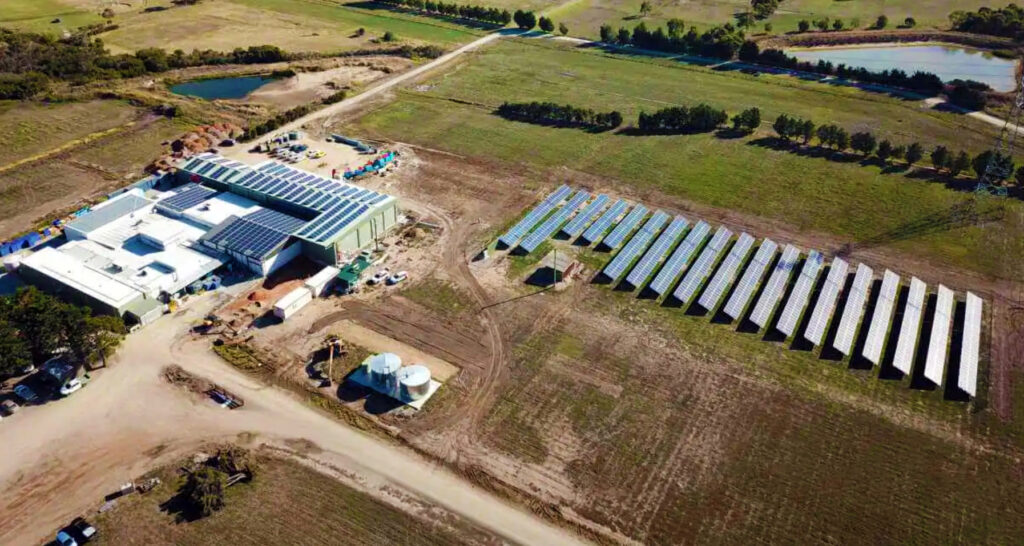
With only a small share of Australia’s vegetable production exported, Jeremy largely had to start from scratch in developing an export model for salads.
“I booked a stand at the Food and Hotel Asia trade show in Singapore, and flew over boxes of salad,” Jeremy says.
Hussey & Co was the only vegetable supplier at the event, and it turned out there was plenty of interest. Singapore Airlines quickly signed up as the grower’s first export customer, and with word spreading through the grapevine of airline chefs, numerous other regional airlines followed.
“Off we went,” says Jeremy. “We supplied all their business class and first class salads, then Cathay Pacific, then on and on.”
Hussey & Co developed a close relationship with an importer in Singapore, and Jeremy set up import company Pick N Pack in Hong Kong in partnership with a local produce trader.
But in the years since, Asian markets have become much more competitive, and many of the airlines are now sourcing from new local salad suppliers, a trend exacerbated during the COVID-19 pandemic when it was very hard to send product into overseas markets.
“When I started there, we were the main people in the market. At one stage we supplied all the major Asian airlines,” Jeremy says.
“We helped pioneer it, but now there’s cheaper options available. The airfreight is very expensive from Australia’s east coast.”
New name for an expanded footprint
Hussey’s exports may soon get a shot in the arm, however. The business recently acquired a share in a West Australian salad grower and processor, and with a new transcontinental footprint has come a new name.
Coinciding with the business’s 50th anniversary in 2025 is a new ‘Hussey Group’ brand. The national grower-processor business now spans six farms in Victoria and Western Australia, with ready-to-eat processing facilities in both states.
The advantages for Hussey are year-round consistency of supply and resilience against seasonal disruptions, and the ability to supply customers nationally.
“We now supply all states and territories around Australia, so if we launch a new SKU, we can do it nationally,” says Jeremy.
The West Australian side of the business may also give Hussey Group an opportunity to reinvigorate its export business.
“We will grow it again, we will refocus on it,” says Jeremy. “From the WA side, the airfreight is much cheaper, so we’re reintroducing our product to customers in Asia from there.”
“There’s more competition now, and the Asian market is getting more and more supplied, but as opportunity comes up, we’ll be in a position to take advantage of it.”
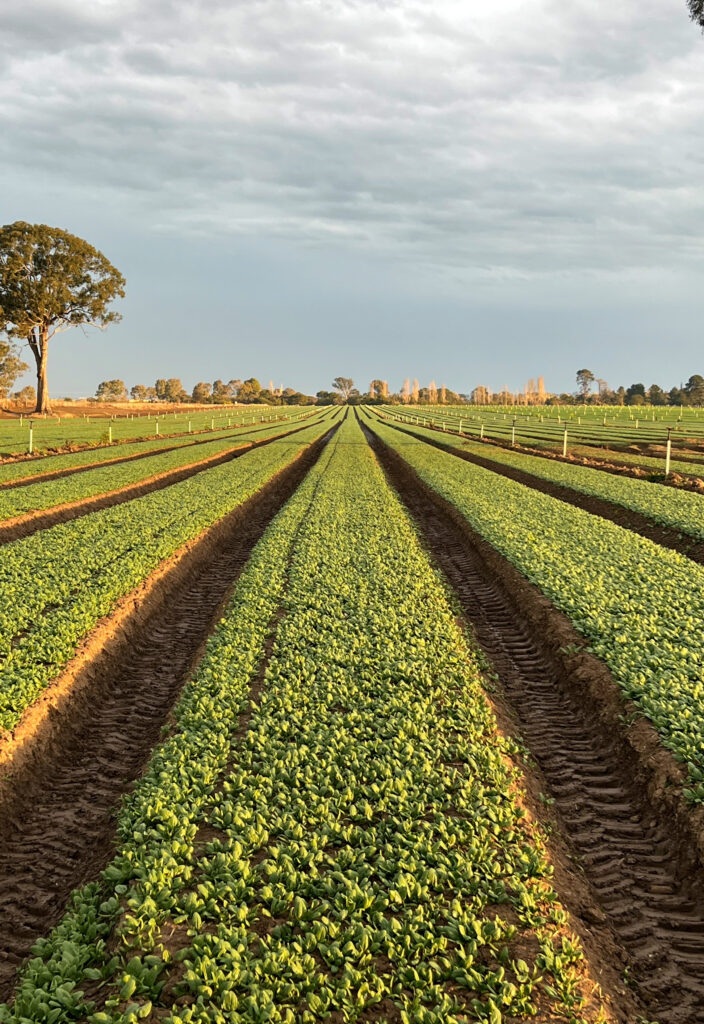 A focus on technology
A focus on technology
Jeremy has always kept a keen eye out for new technology that can help Hussey & Co be more efficient, improve quality or value-add.
“Early on, I knew if I was going to supply retail, I needed to upscale my technology,” he says. “I invested in the biggest air-drying tunnel ever developed, a triple-wash system, and I was the first in the Australian salad industry to install optical sorting.”
Replacing a centrifuge dryer, Hussey’s air dryer was imported from Holland in 2015, and meant the business could increase output, control moisture more accurately, and importantly decrease bruising of delicate loose-leaf salad.
The business also introduced an x-ray machine to the packhouse to detect foreign object contamination, and its Victorian factory has the largest solar panel installation on the Mornington Peninsula.
Hussey & Co’s packhouse has always been central to Jeremy’s vision for the company.
“As a salad grower, it’s very easy to sell to a processor – that’s a very easy entry level,” he says.
“But I avoided doing that because I wanted to become a grower and a processor, which I’ve done. It makes me very difficult to compete with – the grower-processor vertically integrated business is definitely the model we’re focusing on. It’s a very strong model.”
While export markets are competitive, they’re also more numerous. On the domestic market, however, there’s only so much space on the shelves.
“In fresh produce in Australia, it’s like trench warfare; it’s box warfare,” says Jeremy. “If you drop the ball, someone else will take your space.
Value-adding and, critically, delivering consistently high quality is the name of the game.

